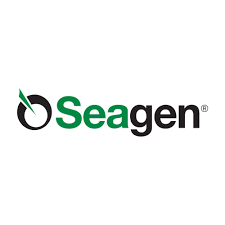BOTHELL, Wash. & TOKYO & RAHWAY, N.J.– Seagen Inc. (Nasdaq: SGEN), Astellas Pharma Inc. (TSE:4503) and Merck (NYSE: MRK), known as MSD outside of the United States and Canada, today announced the U.S. Food and Drug Administration (FDA) has accepted for Priority Review supplemental Biologics License Applications (sBLAs) for PADCEV® (enfortumab vedotin-ejfv) and KEYTRUDA® (pembrolizumab) for use of these two agents in combination for the treatment of patients with locally advanced or metastatic urothelial cancer (la/mUC) who are not eligible to receive cisplatin-containing chemotherapy. The respective applications are intended to expand both labels for PADCEV and KEYTRUDA. The agency set a Prescription Drug User Fee Act (PDUFA) goal date for each application of April 21, 2023.
“We look forward to working closely with the FDA as we seek potential accelerated approval for this combination in the hopes that it can be another treatment option for patients with locally advanced or metastatic urothelial cancer who are not eligible for cisplatin-containing chemotherapy,” said Ahsan Arozullah, M.D., M.P.H., Senior Vice President and Head of Development Therapeutic Areas, Astellas.
The combination therapy was granted Breakthrough Therapy designation by the FDA in February 2020. The respective sBLAs are supported by efficacy and safety data from the phase 1b/2 EV-103 trial (NCT03288545, also known as KEYNOTE-869) Dose Escalation/Cohort A and Cohort K. Results from Dose Escalation/Cohort A were published in the Journal of Clinical Oncology.1 Results from Cohort K were presented in a late-breaking session at the 2022 European Society for Medical Oncology (ESMO) Congress.2
“Urothelial cancer, the most common type of bladder cancer, is associated with poor survival in the advanced stage,” said Marjorie Green, M.D., Senior Vice President and Head of Late-Stage Development, Seagen. “The investigational results from our clinical development program support the combination of PADCEV and KEYTRUDA as a potential treatment for this patient population.”
“Despite advancements in treatment options, approximately half of advanced bladder cancer patients in the U.S. are ineligible for cisplatin-based chemotherapy, and these patients need new options. We are encouraged by the investigational results of the combination of PADCEV and KEYTRUDA for this patient population and are fully committed to work to bring this new approach forward to patients,” said Dr. Eliav Barr, Senior Vice President, Head of Global Clinical Development and Chief Medical Officer, Merck Research Laboratories.
Seagen, Astellas and Merck are further investigating enfortumab vedotin plus pembrolizumab in the ongoing phase 3 EV-302 study (NCT04223856, also known as KEYNOTE-A39), evaluating the clinical benefit for the investigational treatment combination in patients with previously untreated advanced urothelial cancer. The trial is intended to serve as the confirmatory trial for the potential accelerated approval in the U.S. and serve as the basis for global registration.
The studies are part of an extensive program evaluating this combination in multiple stages of urothelial cancer, including two phase 3 clinical trials in muscle-invasive bladder cancer in EV-304 (NCT04700124, also known as KEYNOTE-B15) and EV-303 (NCT03924895, also known as KEYNOTE-905).


